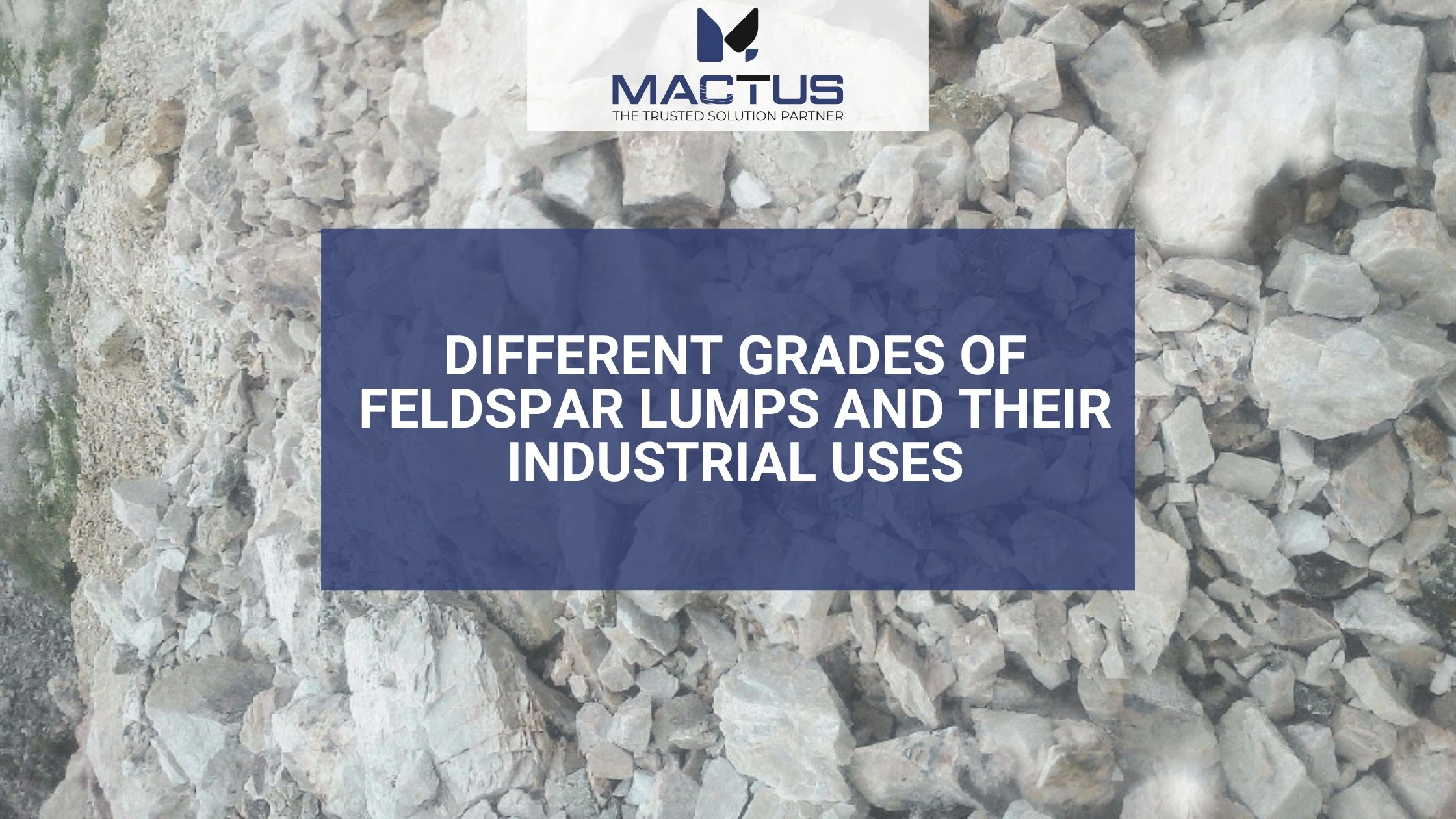

Connect With Our Team
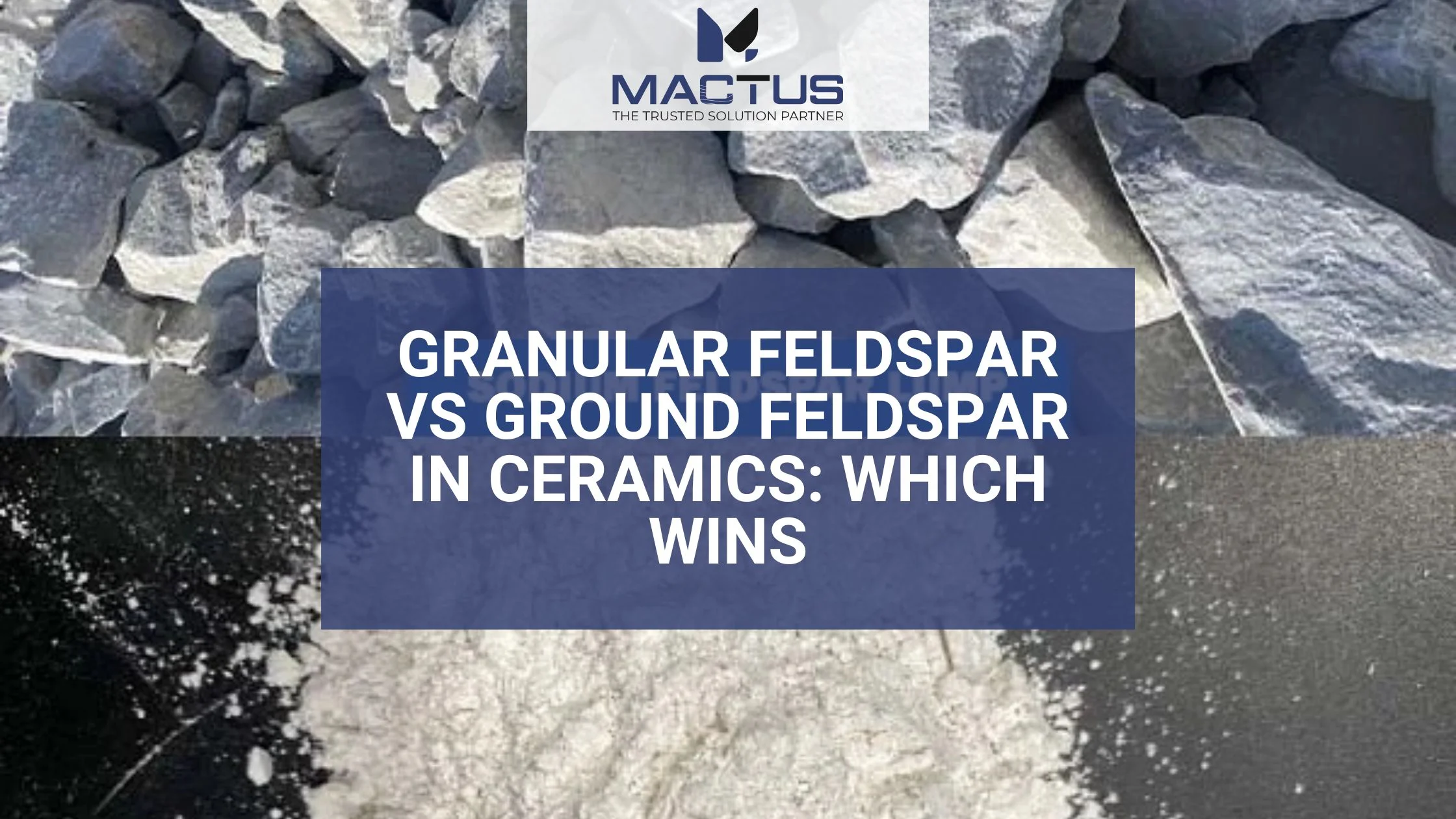
As a naturally occurring feldspar, it is an important mineral applied widely in the production of ceramic since it can be used as a flux to reduce the melting temperature of raw materials and improve the overall strength, texture, and appearance of ceramic products. Nevertheless, it appears that when picking granular feldspar or ground feldspar, manufacturers have to keep in mind a particular specific application and its benefits. In this blog we will talk about these two kinds of feldspar, how they are involved in ceramics and what feldspar is the most suitable for the application.
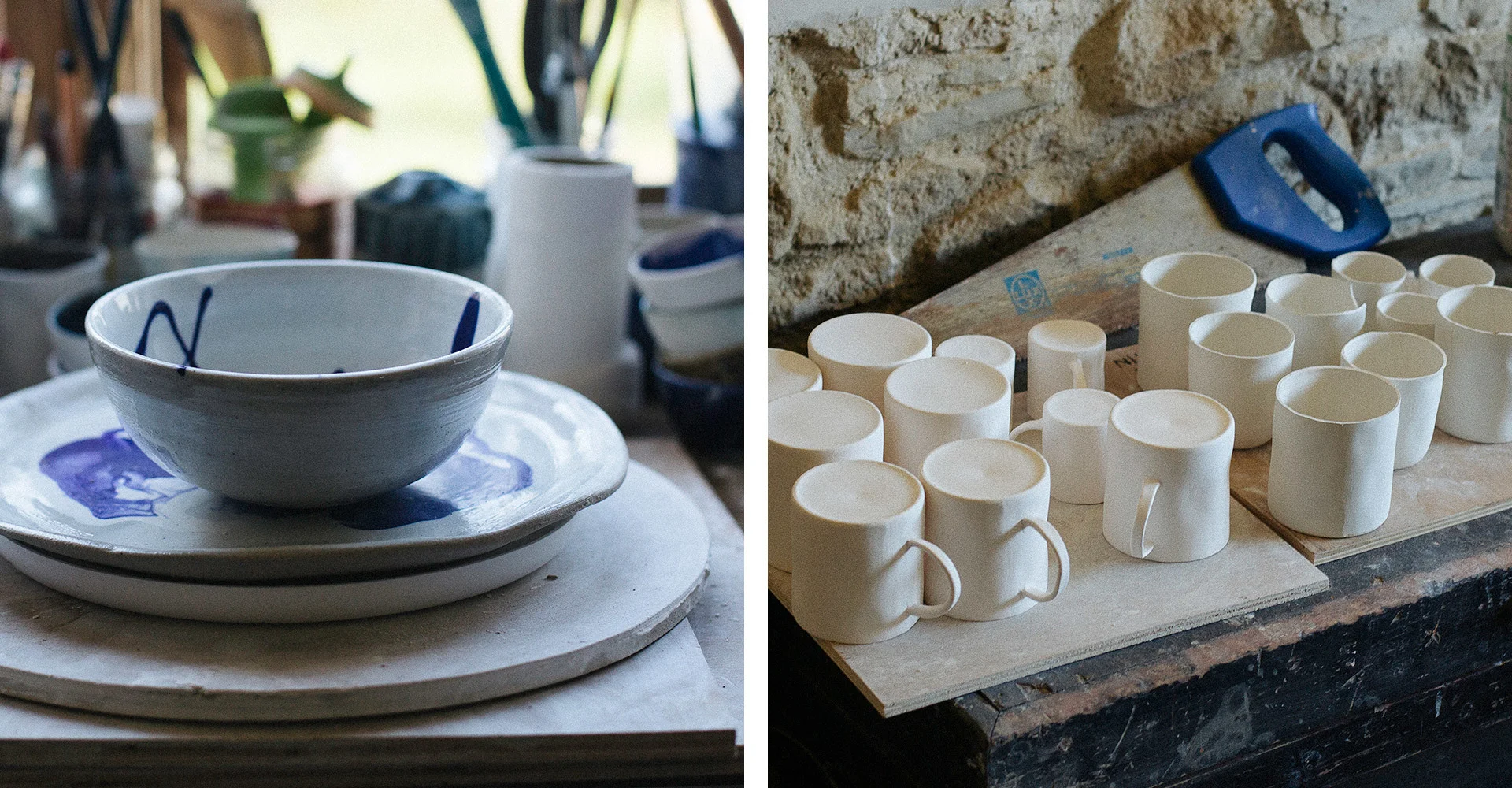
They are important for ceramic formulations because Feldspar is an aluminosilicate mineral containing potassium, sodium, and calcium. It primarily contributes to:
Melting and Vitrification: Feldspar reduces the firing temperature of ceramic materials so that they can melt and bind. It enables the reduction of production costs by decreasing energy consumption while improving the quality of ceramics.
Glaze Formation: It is a flux for the ceramic glaze, it improves gloss and smoothness. A good formula on feldspar yields an excellent, glossy finish and good wear resistance.
Strength and Durability: It strengthens and makes the ceramics more durable to stress and impact. The significance of this becomes all the more important in high-performance ceramics used for sanitaryware, tiles, and porcelain.
These purposes are met by ground and granular feldspar, although their physical characteristics affect how the goods see fit in the ceramic production process.
Coarser particles of granular feldspar are used where controlled melting is needed, either because it is desired to control the rate of melting, or because the melted glass is to be used in a demanding application. The grain size and composition are available in different ways to fit the needs of ceramics. Granular feldspar retains a natural coarse texture not unlike that of ground feldspar, but is perfectly suitable for certain ceramic effects and for high-fired applications.
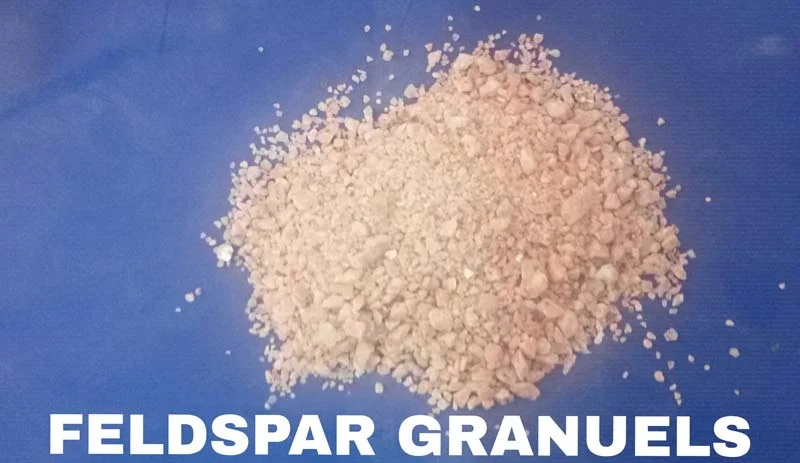
Controlled Melting: The bigger particle size enables the melting to happen gradually, which decreases the risk of overfiring or warping in ceramic bodies. It is particularly favorable for high-fired ceramics and applications that require thermal control because it allows precise application of thermal power.
Texture Enhancement: This is used for the textured ceramic surfaces of handmade pottery and rustic tiles. Granular feldspar is present which can lead to particular surface patterns and variation on the ceramic pieces, thus adding character to them.
Reduced Dust Formation: While finely ground feldspar produces more airborne dust, granular feldspar has less and thereby safer handling in a manufacturing environment. In addition, it improves work conditions in the ceramic workshops, alleviating the hazards affecting health from dust inhalation of fine dust.
Improved Glaze Stability: It helps in obtaining a more stabilized glaze effect and reduces the chances of excessive running. As a component of other glaze materials, granular feldspar contributes to more consistent glaze reactions during firing and can prevent unpredictable glaze reactions.
1. Longer Melting Time: Due to its coarser nature, it may require higher firing temperatures to ensure complete vitrification. This can lead to increased energy consumption and longer production cycles.
2. Limited Use in Fine Glazes: In glaze applications, granular feldspar may not dissolve as uniformly as ground feldspar, leading to uneven surface finishes. This can be a disadvantage when creating ultra-smooth and highly refined ceramic surfaces.
Ground feldspar is finely milled and processed to provide uniform particle size distribution. It is usually used in the glazes and bodies of ceramic for a smooth and homogeneous texture. Feldspar is the milling process to integrate with other raw materials on the other end means that the feldspar does not attract other materials and is more compatible with high-end ceramic applications.
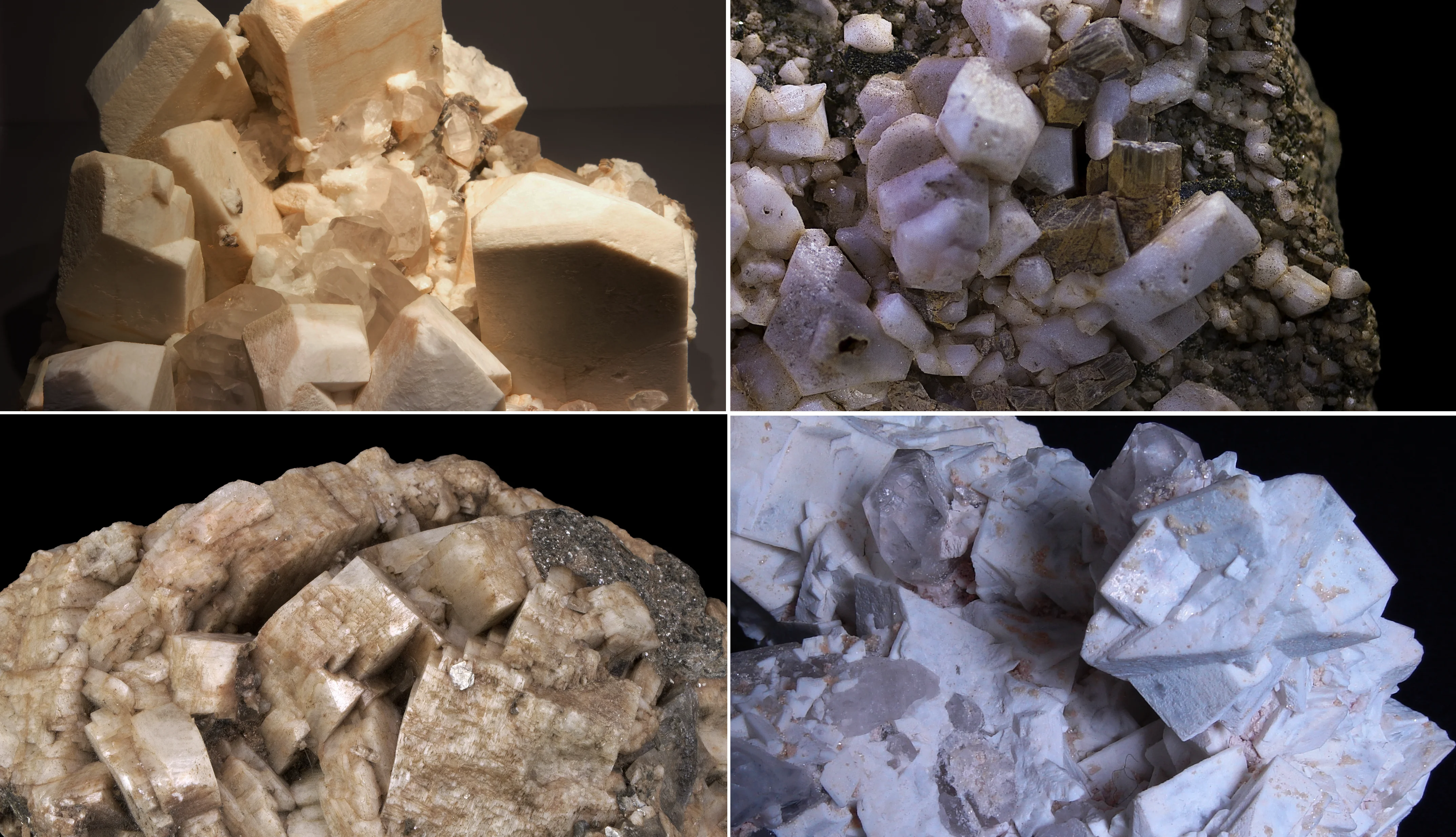
Fast and Even Melting: Its fine particles are fast and uniform melting, and it is very suitable for high gloss ceramic glazes. Ground feldspar is a fine material which makes it ideal in ceramic composition to minimize the number of potential defects.
Better Homogeneity: Reduces defects such as pinholes or an uneven texture in a ceramic composition. It is essential for obtaining excellent surfaces of ceramic in high-quality porcelain and sanitaryware.
Ideal for Mass Production: Widely used as a mass-production material in industrial ceramics, such as sanitary ware, mosaic tile, and tableware. Meanwhile, the uniformity of ground feldspar makes large-scale production easier to provide uniform product quality.
Enhanced Gloss and Transparency: It can be used as a better Gloss and Transparency glaze to enhance the look of a smoother glossy glaze finish, in different kinds of decorative ceramics. Its fine particle size aids in blending with other glaze materials for better translucency and gloss.
1. Higher Dust Generation: Fine particles can create airborne dust, requiring proper handling measures. This necessitates the use of dust collection systems and protective gear to maintain workplace safety.
2. Over-Melting Risks: Can lead to excessive glaze flow or running if not properly balanced in the formulation. This can result in unpredictable outcomes, particularly in intricate ceramic designs requiring precise glaze control.
| Feature | Granular Feldspar | Ground Feldspar |
| Melting Behavior | Slow and controlled | Fast and even |
| Texture Impact | Adds texture, ideal for rustic ceramics | Smooth finish, perfect for polished ceramics |
| Glaze Application | Limited, may cause graininess | Uniform, high-gloss finishes |
| Industrial Use | Best for handmade pottery and high-fired ceramics | Preferred for mass production and fine ceramics |
| Dust Production | Lower, safer handling | Higher, requires dust control |
| Firing Temperature | Higher for complete vitrification | Lower, enabling energy efficiency |
The use of granular or ground feldspar depends on the type of ceramic product, firing conditions, and desired finish:
For high-gloss and smooth ceramic glazes: Ground feldspar is the choice for high gloss and smooth ceramic glazes because of its even melting and fine surface finish. This then assures that the finished glaze is flawless and mirror-perfect over ceramics.
For textured ceramics and high-fired pottery: Granular feldspar is better for textured ceramics and high-fired pottery due to controlled melting cooled surfaces. It is a favorite with artisans who produce handcrafted ceramic products with unique surface effects.
For industrial tiles and sanitaryware: We have consistency of production in large scale and polished final product from ground feldspar. It allows manufacturers to have a uniform quality of thousands of units alike.
For specialized handmade ceramics: Granular feldspar is particularly helpful in achieving incredible artistic effects and forms. It is often found being used by potters or ceramic artists who want to add character to their work with subtle surface irregularities.
Both granular feldspar and ground feldspar play essential roles in ceramic manufacturing. Meanwhile, granular feldspar provides a controlled melting and texture enhancement while ground feldspar ensures uniformity and efficiency in industrial applications. The selection of suitable feldspar depends on the specific ceramic formulation and process of production.
If you're looking for top-quality feldspar for ceramic production, consult Mactus Mineral trusted mineral supplier to get the best composition suited to your needs. Don’t invest in the wrong type of feldspar, as it can seriously affect the quality, efficiency, and aesthetics of your ceramic products!
Whatsapp Chatx
Hi! Click one of our representatives below to chat on WhatsApp or send us email to [email protected] [email protected]
 |
Mr. Vivek Rajpara +91 75750 53447 |
 |
Mr. Nikunj Vadaliya +91 98240 66283 |
